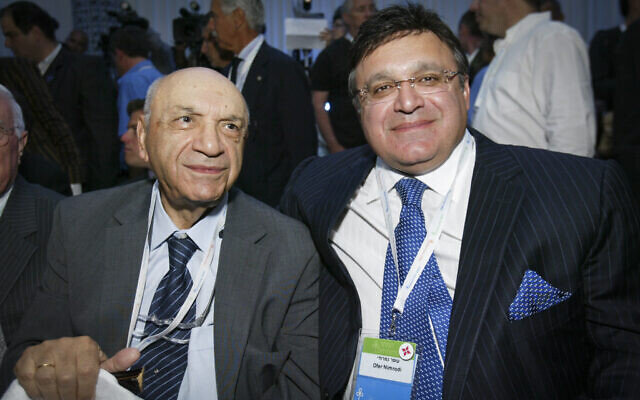Yaakov Nimrodi, former Mossad kingpin in West Asia, dies at 97

TEHRAN – Yaakov Nimrodi, a mastermind of Israel’s spy agency, Mossad, died on Wednesday at the age of 97 in a hospital in the occupied territories.
Nimrodi is considered to be one of the founders of Israeli spy networks in Iran, Iraq and Persian Gulf Arab countries.
He served in various terrorist organizations and played an important role in helping the Israeli regime get established.
Nimrodi was born on June 1, 1926, in a Jewish Iraqi family in al-Quds. His family had migrated from Iraqi Kurdistan to Palestine before his birth. He began a spying career very early on, getting drafted into the first spy agency of the Zionist regime, Shai, before Israel was even established.
Nimrodi later joined the terrorist organization Haganah during the years 1940-1947 and participated in terror activities against Palestinians. He rapidly climbed the ladder in the Zionist regime's security network and became one of its high-ranking officers. He also became a member of Palmach, another terrorist organization that carried out operations against Muslims.
In the following years, during Israel's invasions of Arab countries, he was in charge of Israeli spy networks in the region. Nimrodi first entered Iran on January 20, 1956, through Turkey and became the first Israeli spy in Iran. His mission in Iran lasted for 13 years (until 1969). He had entered Tehran to establish communication between Mossad and SAVAK, the secret police, domestic security and intelligence service in Iran during the reign of the Pahlavi regime.
During the Pahlavi regime, many Mossad agents, mainly under economic, commercial, and unofficial diplomatic covers, operated in various parts of Iran. They would transport their military necessities, equipment, and weapons to Iran through diplomatic mail and use them for espionage activities. SAVAK played a primary role in facilitating these illegal transfers. Many of those who entered Iran from Israel under cultural and political covers were Mossad agents, and in many cases, they were completely unrecognizable to SAVAK and even the U.S. agency.
In the meantime, some espionage agents of Mossad operated in Iran under the cover of journalists and reporters, performing their assigned missions with such skill that they were rarely identified by SAVAK and other active intelligence-security services in Iran.
As was customary for Mossad worldwide, many of its agents and spies in Iran also had passports and seemingly non-Israeli nationalities. Some individuals with forged passports from European and American countries, among others, were active in Iran for Mossad. It should be noted that Mossad's unofficial spies and agents were Jews who lived in different countries and also held the citizenship and passport of those countries. However, they were ideologically and politically loyal to the Israeli regime.
Mossad quickly grew in Iran in the 60s and Israel has always been thankful to people like Nimrodi for that progress.
Nimrodi later admitted the brutality of Mossad’s activities and operations in Iran. "If journalists were allowed to learn about the things we did in Tehran, they would be horrified and even unable to picture them," the agent said during an interview.
Shortly after completing his mission in Iran, Nimrodi resigned from his positions in Mossad and the Israeli military and resumed his activities in the economic-commercial field in Iran. He maintained his connections with the Shah and high-ranking Iranian officials. However, SAVAK had no doubt that Nimrodi's presence in Iran would not be limited to business activities, and he would continue his espionage operations against Arab countries. In a document dated February 15, 1970, SAVAK casted doubt on Nimrodi’s true intentions: “Colonel Nimrodi apparently served in Iran for 13 years as a military aide to Israel and his new engagement in Iran, whether he retires from the army or not, is likely to be a cover for intelligence activities in the Persian Gulf and among the sheikhs”.
Therefore, Nimrodi, while engaging in major economic-commercial activities in Iran that brought him immense wealth, also had connections with the Israeli spying apparatus in West Asia. Until his last days in Iran during the Pahlavi era he was in fact serving the Israeli regime with great dedication. It is also believed that he was involved in the smuggling of Iranian antiquities to various foreign countries.
